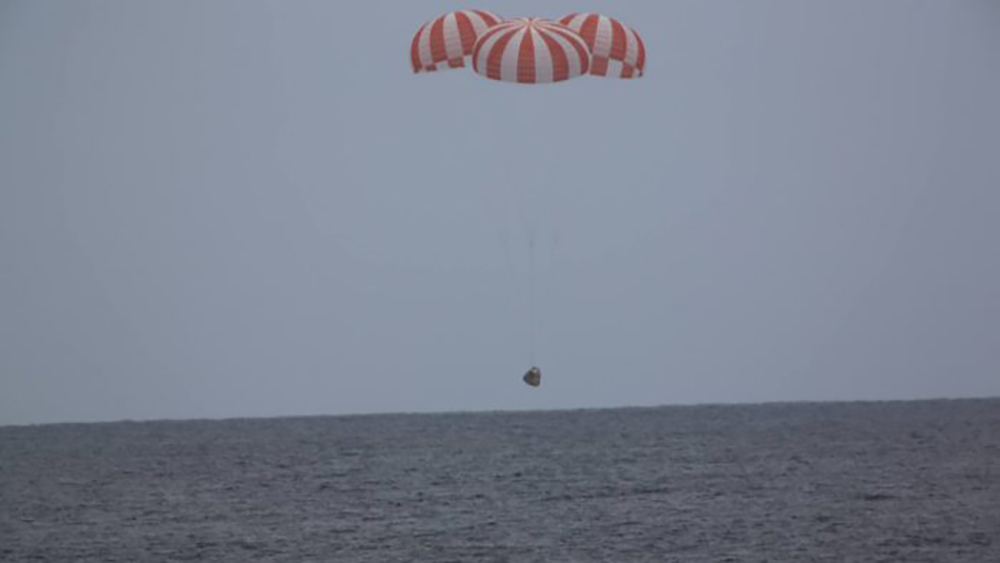SpaceX just brought 1,800kg of science back to Earth from the ISS
Along with a leaky spacesuit

A SpaceX 'Dragon' capsule loaded with almost two tonnes of experimental data has returned to Earth, splashing down off the western Californian coast at 2.51pm local time on 11 May.
The unnamed spacecraft took a little under six hours to return to the surface after being detached from the International Space Station by British astronaut Tim Peake using a large robotic arm. On its way up, it carried supplies and an inflatable room that will expand the station's living space.
Blood and Urine
On its way back down, however, it carried more than 1800 kg of items - including blood and urine samples from astronaut Scott Kelly, who spent a year on the station before returning to Earth back in March. Researchers plan to use the samples to examine how the body copes with long periods of time in space - crucial to understand before a planned mission to Mars in the 2030s.
"Thanks @SpaceX for getting our science safely back to Earth! Very important research," said the now-retired Kelly in a tweet shortly after the splashdown. The 'Dragon' capsules are the only supply modules that return to Earth - others are filled with trash and allowed to burn up on re-entry.
The returning capsule also contained a faulty spacesuit worn by Tim Kopra. During a spacewalk in January, the suit leaked a small water bubble into the helmet, forcing the astronauts to abandon their mission as a safety precaution. It will be examined to try and work out what went wrong.
Gut Flora
Other study samples onboard included an experiment to find out if bodily fluid shifts during prolonged spaceflight can lead to visual impairment, one looking at the effect of spaceflight on gut flora, one examining astronaut saliva, and data for a study on twins where one goes into orbit and the other stays on Earth.
The return of the data marks the successful completion of one of SpaceX's toughest missions to date. The Falcon rocket booster that launched the capsule into orbit landed safely on an ocean barge and is now sitting in a hanger in Florida awaiting another flight. Normally, these boosters are used once then discarded.
Sign up for breaking news, reviews, opinion, top tech deals, and more.
SpaceX founder Elon Musk hopes that by recovering rockets, rather than treating them as one-off, disposable tools, the cost of spaceflight could be slashed considerably.
